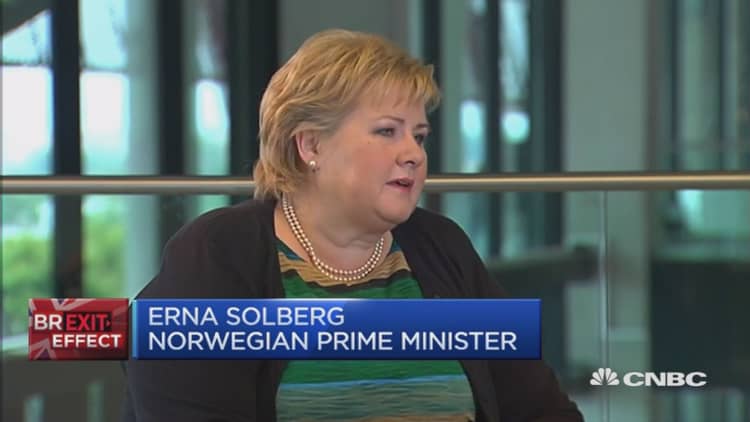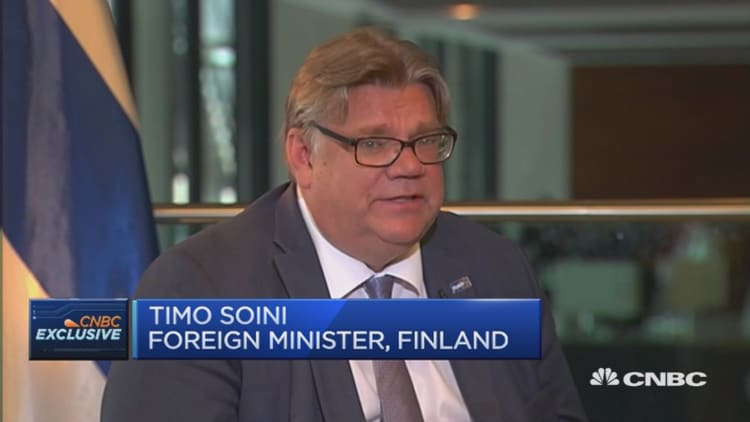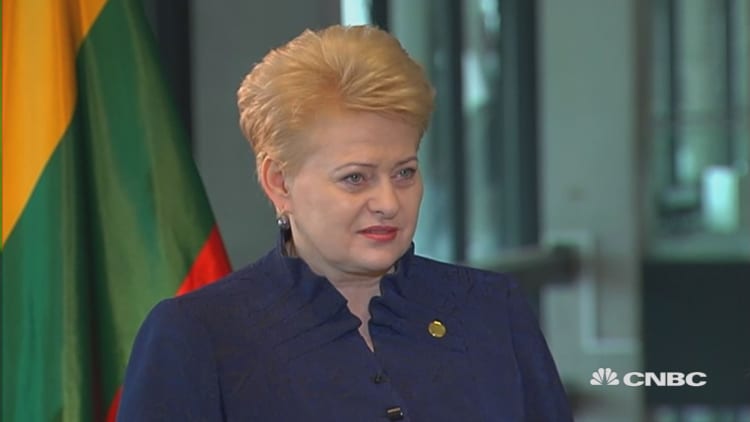




German Chancellor Angela Merkel has said she expects the U.K. to kick off its European Union (EU) exit negotiations as soon as a new prime minister is in place and that there would be no turning back from the decision to leave the bloc.
Speaking to national broadcaster ZDF at the weekend, Merkel warned that Britain would have to accept the good with the bad in its future relationship with the union and reiterated that there would be no "cherry picking" with the U.K. able to pick and choose which aspects of EU life it wanted to keep.
"The decision (of Britons to leave the EU) has been taken … and the next step is – and Britain will do this only when they have a new prime minister – to invoke Article 50," she told public broadcaster ZDF on Sunday, Reuters reported.
"I expect that to happen. I deal with reality and I firmly expect that application will be made," Merkel added when asked if she thought there was a chance that Brexit would not happen.
As leader of Europe's most powerful nation Germany, Merkel is expected to be influential over the tone of talks with Britain when its negotiations over a Brexit take place. U.K. Prime Minister David Cameron resigned following the June 23 referendum when 52 percent of voters opted to leave the economic and political bloc.
The vote caused turmoil in financial markets as well as the U.K.'s political establishment with a leadership race now underway to find the next leader of the ruling Conservative party and next prime minister. Two women are in the running for the position, Home Secretary Theresa May and Energy Minister Andrea Leadsom, and whoever wins will have the difficult task of overseeing potentially awkward Brexit talks.
Problematically, the U.K. would like to maintain its lucrative access to the EU's single market and 500 million consumers but to do so must accept the EU's founding principles, known as the "four freedoms," that guarantee the free movement of goods, capital, services, and people. The latter freedom is a sore point for a portion of the population who voted for Brexit in order to limit immigration, however.
There is also the so-called "Norway option." Norway is not a member of the EU but is a member of the European Economic Area (EEA) which gives it access to the single market. Norwegian Prime Minister Erna Solberg told CNBC that Norway has had to accept the EU's rules, however.
"I think the Norway option is the best for Norway," Solberg told CNBC on the sidelines of the NATO summit over the weekend.
"And I think for small countries it is a good agreement. I doubt that those who were arguing for leave will be satisfied with the fact that we have the four freedoms - we are, we are fully members of Schengen (a passport-free movement agreement), and we are in fact in some areas more integrated with the EU structures than Britain was before, especially on the Schengen part. But I think it's up to the Brits to decide what they want to opt for, what is the core elements that they would like to participate with, continue to work with the EU?," she said.
"If you want freedom of trade and services, people are moving with the services," she noted. "It might be possible to have an arrangement where you can access parts of that market, but can you have it all? I think it's going to be difficult especially on the services side which Britain is big on. It's a big country when delivering services. But that's up to the Brits to decide what they want and of course the negotiation with the EU."
Merkel's tough tone with the U.K. has raised eyebrows over how the U.K. will be treated by EU leaders when talks take place. Some have called for an example to be made of the U.K. – that is, to not give the U.K. too good a post-EU membership deal – lest it encourages other countries to follow suit with their own EU referendums.
EU leaders are well aware of a rising tide of Euroskeptic sentiment and want to deter other anti-establishment, anti-EU political movements.
The foreign minister of Finland, Timo Soini, told CNBC that despite some "loud words" over the U.K.'s exit, there shouldn't be ill will towards the country.
"My view is that there shouldn't be ill will and definitely not revenge (towards the U.K.) because we need each other. The U.K. needs Europe, the European Union, and we need them. Together we are stronger but this is something which is now is a fact of life and we must act accordingly," he told CNBC on the sidelines of the NATO summit last week.
"I personally think it would be wise to do it (in) a way that nobody is going to get hurt - that everybody benefits … If there is a will, there is a way," Soini added.



